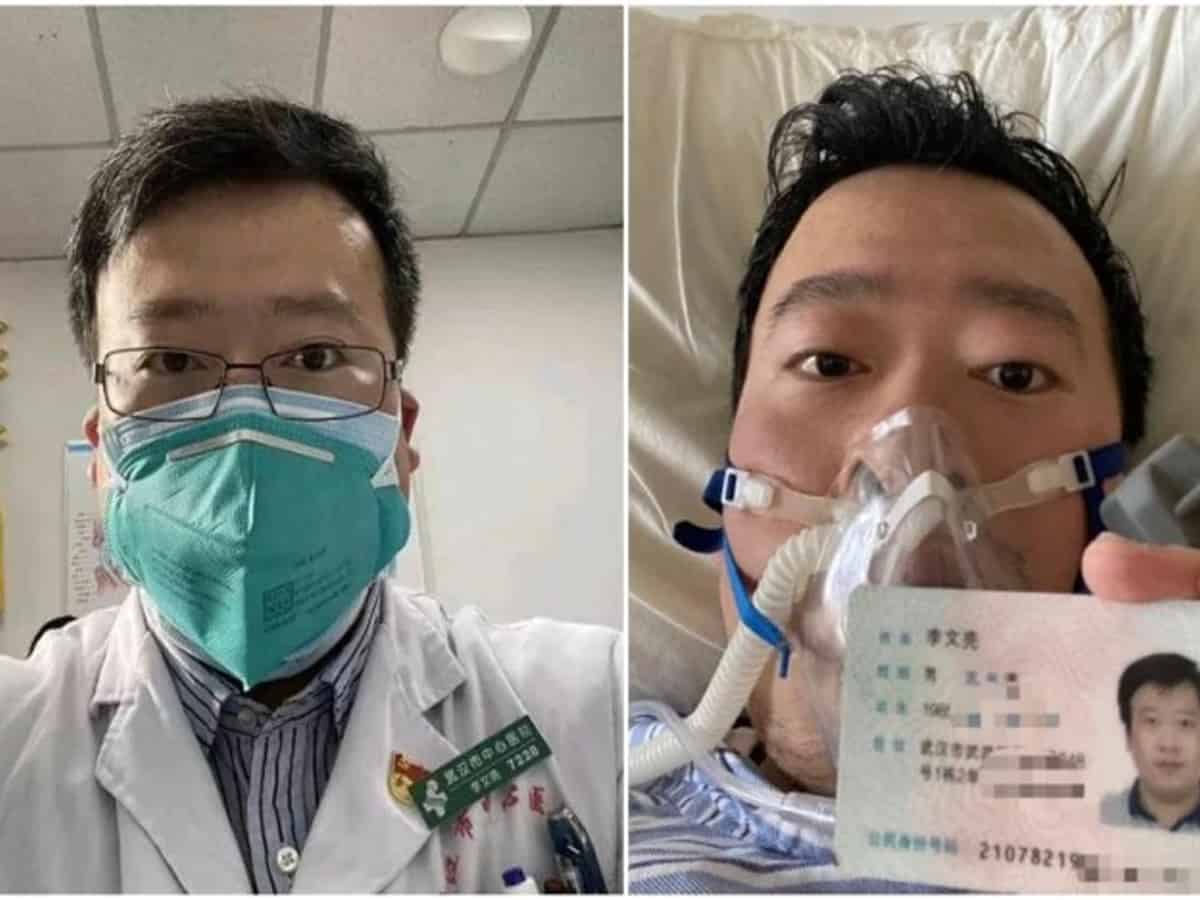BEIJING: A Chinese doctor who was punished after raising the alarm about China’s new coronavirus died from the pathogen on Friday, sparking an outpouring of grief and anger over a worsening crisis that has now killed more than 630 people.
Li Wenliang, 34, died early Friday, Wuhan Central Hospital said in a post on China’s Twitter-like Weibo platform, an announcement that triggered grief on social media — over a doctor who was hailed a hero — and anger over the government’s handling of the crisis.
Who was Dr Li Wenliang?
Li and colleagues had first brought to light in late December.
Li sent out a message about the new coronavirus to colleagues on December 30 in Wuhan — the central city at the epicentre of the crisis – through a chat on the Chinese messaging app WeChat.
On January 3, Chinese authorities summoned Li among eight whistleblowers doctors and accused them of “rumour-mongering”.
“The police call on all netizens to not fabricate rumours, not spread rumours, not believe rumours,” the message read.
The ophthalmologist after signing an affidavit acknowledging his crime and not engage in any such “unlawful acts.”
He returned to work in Wuhan Central Hospital but later contracted the coronavirus from a patient he treated.
On January 10, he started coughing and developed a fever the next day.
He was hospitalized on January 12. Soon, his condition deteriorated and he had to be shifted to the ICU.
He tested positive with the coronavirus on 30 January and dies after five days.
Death censored
The death of the ophthalmologist sparked an outpouring of grief and anger over a worsening crisis.
Censors appeared to struggle with how to deal with his death.
“I learned two words today: political resuscitation and performative resuscitation,” the top comment of Wuhan Central Hospital’s post reads.
“As a journalist, I refuse to quote the ‘official time of death’ of Dr Li, which is February 7 early morning,” Muyi Xiao, the visual editor at ChinaFile, an online magazine, said on Twitter.
State-run newspaper Global Times and state broadcaster CCTV first reported on Weibo that Li had died late Thursday, only to delete their posts after the death rapidly surged to be among the top topics on the popular platform.
“He is a hero who warned others with his life,” a fellow Wuhan doctor wrote on Weibo after reports of his death emerged.
“Those fat officials who live on public money, may you die from a snowstorm,” wrote one angry Weibo user in a comment that has since been censored.
Li’s death also highlights the enormous risks that frontline doctors have taken to treat patients in overwhelmed and under-equipped hospitals in Wuhan, the quarantined city of 11 million people where the virus emerged in December.
The World Health Organization reacted to the first reports of his death to express sadness.
Analysts have said that local authorities played down the extent of the outbreak in early January because they were holding political meetings at the time and wanted to project an aura of stability.
The first fatality was reported on January 11. The death toll has since soared to 636, with 73 more reported on Friday and an additional 3,000 new infections.
China launches probe
China’s anti-graft watchdog announced Friday an investigation after the death of a whistleblowing doctor sparked anger over the government’s handling of the coronavirus emergency.
The discipline inspection commission said a team would go to Wuhan, the virus-hit city where doctor Li Wenliang died, to “conduct a comprehensive investigation into issues involving Dr. Li Wenliang reported by the masses”.
China’s supreme court in January criticised Wuhan police for punishing early “rumour mongers,” saying the outbreak may not have become so serious “if the public had believed these ‘rumours’ at the time.”
Global spread
The virus is believed have emerged from a market selling exotic animals in Wuhan before jumping to humans and spreading across China and abroad as millions travelled for the Lunar New Year holiday.
Some 56 million people in Wuhan and surrounding cities have been ordered to stay home, while several countries have banned arrivals from China and advised their citizens to leave.
Major airlines have suspended flights to and from the country.
But cases keep emerging.
While the death toll continues to rise, experts have stressed that at two percent mortality, 2019-nCoV is far less deadly than SARS, which killed around 10 percent of the people it infected 17 years ago.
The outbreak has nevertheless been declared a global health emergency.

